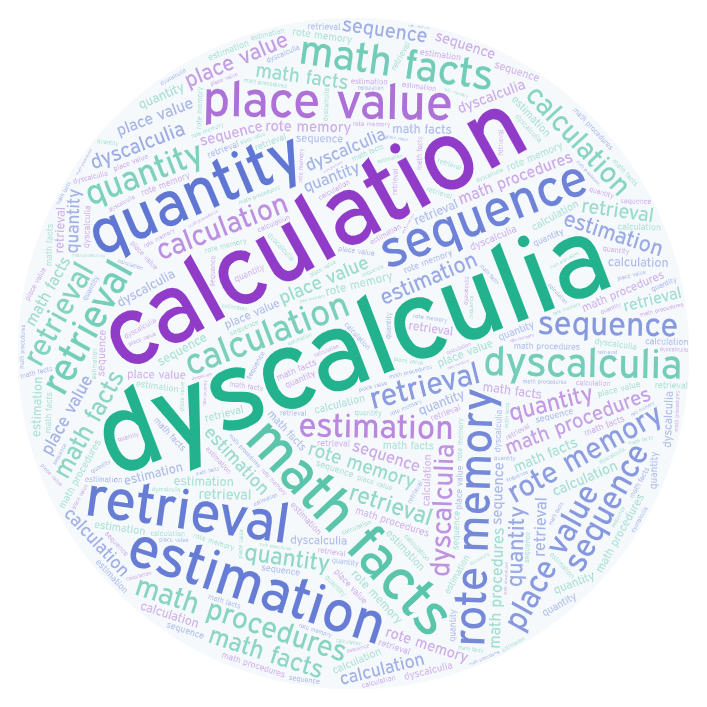After dyslexic students make progress in their ability to decode words, parents, teachers, and students themselves may begin to breathe a sigh of relief; however, another monster challenge may be looming on the horizon – the other D…. Dysgraphia. The National Institutes of Health definition of Dysgraphia includes the following: “Dysgraphia is a neurological disorder characterized by writing disabilities. Specifically, the disorder causes a person’s writing to be distorted or incorrect. In children, the disorder generally emerges when they are first introduced to writing. They make inappropriately sized and spaced letters, or write wrong or misspelled words, despite thorough instruction. Children with the disorder may have other learning disabilities; however, they usually have no social or other academic problems. Cases of dysgraphia in adults generally […]
Teaching Science to Students with Dyslexia – Middle School [Premium]
Adolescents are at a stage of development when they need to be in an environment where they can experience independence, growth, cooperation, and creativity; however, the typical middle school provides an environment that stresses competition, grades, relative ability, and rote memorization.” – From The Middle School Experience: Effects on the Math and Science Achievements of Adolescents with LD Perhaps because of dyslexic strengths in direct observation, causal reasoning, and analytical problem solving, the subject of science in middle school present opportunities for talent and possibly future career development. The potential obstacles facing students with dyslexia with interests in science are several: extensive technical vocabulary, similar sounding but distinct terms, writing demands for essays and lab notebooks, however teaching strategies based on students’ relative strengths and learning preferences […]
Top Back to School Apps for Dyslexia [Premium]
EARLY READERS Endless Reader by Originator – Free to try; $5.99-11.99 bundles. iPhone and iPad Great for visual learners. Animations and characters help with sight word learning. Orton Gillingham Card Deck by Mayerson Academy FREE. iPhone and iPad Multisensory card deck with consonants, single vowels, consonant digraphs, vowel teams, vowel + r, short vowel signals, VCe, and common suffixes. Auditory drill. Record and playback to hear pronunciations. Video see and hear sounds. Great phonics practice. Sight Words by Little Speller – FREE Iphone and Ipad All 220 sight words, no-frills program that allows you to create your own sight word lists – lower case or upper case letters. Can allow hints. Sight Words Reading and Spelling by Edoki $3.49 Android. Includes 320 sight words (Fryes + Dolce). […]
Children’s Books Featuring Positive Characters with Dyslexia
CLOSE TO FAMOUS Newbery Honor winner. When twelve-year-old Foster and her mother land in the tiny town of Culpepper, they don't know what to expect. But folks quickly warm to the woman with the great voice and the girl who can bake like nobody's business. Soon Foster...
[Premium] Thriving: Pick Classes Like a Pro
Whether it’s high school or college, picking your classes can make a tremendous difference in your school experience and grades. Many of the general strategies given to college freshman often apply, but some additional tips can be helpful if you’re dyslexic.
Dyslexia and IMPOSTER Syndrome [Premium]
“It’s only because they like me.” “I just got lucky.” “I just work hard.” “If they really knew me…” Recognize this? It’s a the voice of self-doubt, fear, and anxiety. It’s a feeling like you’re a fraud and that any time, you might be found out. Imposter syndrome was first characterized in 1978 when Clance and Imes studied a group of successful, high-achieving women. Despite their high success, these women had high levels of self-doubt and a feeling that any time, they might be found out.
ADHD / Gifted 2E Guidelines from Department of Education – Schools
In breaking news, the US Department of Education and Office for Civil Rights have released their a letter from Asst Secretary Catherine Lhamon and its Students with ADHD and Section 504 Resource Guide HERE. For your convenience, we also include them below -...
Q: Can I Join the Military if I Have Dyslexia? Do Accommodations and the ADA Apply to the ASVAB ?
This question comes up often. Many people know that accomplished military dyslexic people (General George Patton, Commander Joseph Hoar [Commander in Chief of US Central Command], among others) have served their country in all branches of the military - including...
Harvard Genetics Professor George Church on Dyslexia and Failing [Premium]
“If you’re not failing, You’re probably not trying as hard as you could be.” – Dyslexic Harvard Genetics Professor George Church From Harvard’s Gazette: Church had an erratic path through higher education like many dyslexic students, but his path shows a lot of ingenuity, passion, and dogged persistence in spite of not learning to read well. As a young person: “I was using books — even though I had a lot of trouble reading. By using the index and using photographs, I could figure out just about anything. So that kind of set me on a course of independent study. I was not particularly well adapted socially. I had dyslexia, narcolepsy, OCD, ADD — all these things were very mild, but made me feel different.” […]
Q: Can I Be Software Developer with Dyslexia ? A: YES! [Premium]
This question comes up surprisingly often, although dyslexic computer programmers or software developers are probably on every team and startup. Some of the big picture reasons dyslexics made do well in programming: – Strong Problem Solving – Systems Thinking – Big Picture – Flexible Thinking – Analytical and Logical But for the details of why dyslexics do well in software development, lets hear from developers themselves: From Simon, Lead Software Engineer: “You may worry that you have to read and write code all day, but its not the same as documents its simple code. If your dyslexic mind works anything like mine you process words as pictures and patterns. This works great for code you can easily visualise systems and processes. Code is the best grammar and spell checker you […]
Tips for Supporting a Student with Dyscalculia – Steve Chinn
Thanks Steve Chinn of Maths Explained for this post. Steve also has several books with practical strategies to help with math and dyscalculia. There's The Trouble with Maths and an eagerly awaited Mathematics for Dyslexics and Dyscalculics - 4th Edition which is now...
Best Early Dyslexia Screeners for Schools – Elementary [Premium]
With new legislation moving schools toward early identification of students with dyslexia, teachers, classrooms, and districts are having to decide on which screener would be best for identifying students “at-risk.” For dyslexic students, presence of a reading gap has been detected as early as the first grade and early intervention is well-recognized to be beneficial. Universal screening in schools is a great idea – parents, teachers, and students should just be aware of the limits that a brief screening tool can have. Most early screeners will not include cognitive or intelligence tests (e.g. working memory, reasoning, ‘giftedness’) nor will they assess non-reading academic tasks such as math, writing, or spelling. They are a start, however, and will definitely be valuable for helping kids get the […]

![[Premium] Examples of Dysgraphia and Dyslexia – What to Look For](https://www.dyslexicadvantage.org/wp-content/uploads/2016/08/dysgraphia-dyslexia.jpg)
![Teaching Science to Students with Dyslexia – Middle School [Premium]](https://www.dyslexicadvantage.org/wp-content/uploads/2016/08/Screen-Shot-2019-09-10-at-1.36.55-PM.jpg)
![Top Back to School Apps for Dyslexia [Premium]](https://www.dyslexicadvantage.org/wp-content/uploads/2016/08/apps-dyslexia-our-shutterstock.jpg)

![[Premium] Thriving: Pick Classes Like a Pro](https://www.dyslexicadvantage.org/wp-content/uploads/2016/08/choose-classes-dyslexia.jpg)
![Dyslexia and IMPOSTER Syndrome [Premium]](https://www.dyslexicadvantage.org/wp-content/uploads/2016/08/shutterstock_375647329.jpg)


![Harvard Genetics Professor George Church on Dyslexia and Failing [Premium]](https://www.dyslexicadvantage.org/wp-content/uploads/2016/07/Screen-Shot-2019-09-15-at-9.02.10-PM.jpg)
![Q: Can I Be Software Developer with Dyslexia ? A: YES! [Premium]](https://www.dyslexicadvantage.org/wp-content/uploads/2016/07/coding-dyslexia.jpg)

![Best Early Dyslexia Screeners for Schools – Elementary [Premium]](https://www.dyslexicadvantage.org/wp-content/uploads/2016/07/Screen-Shot-2019-09-15-at-4.30.16-PM.jpg)













